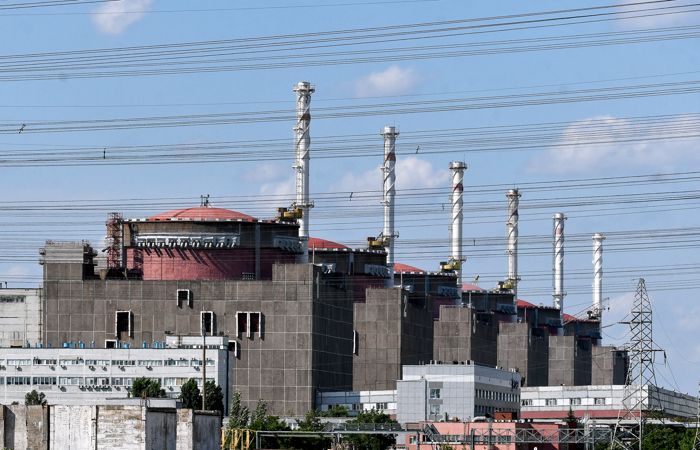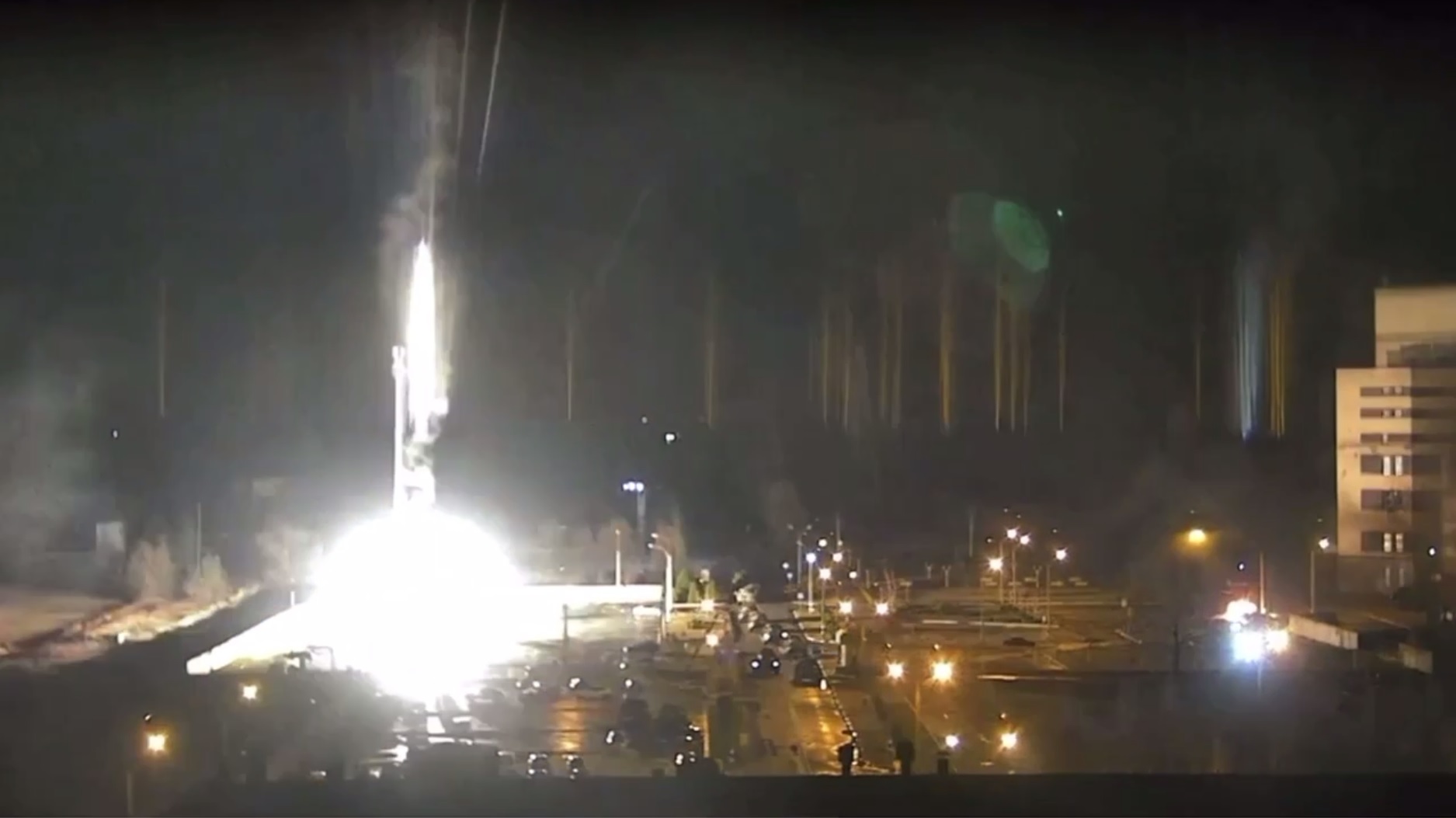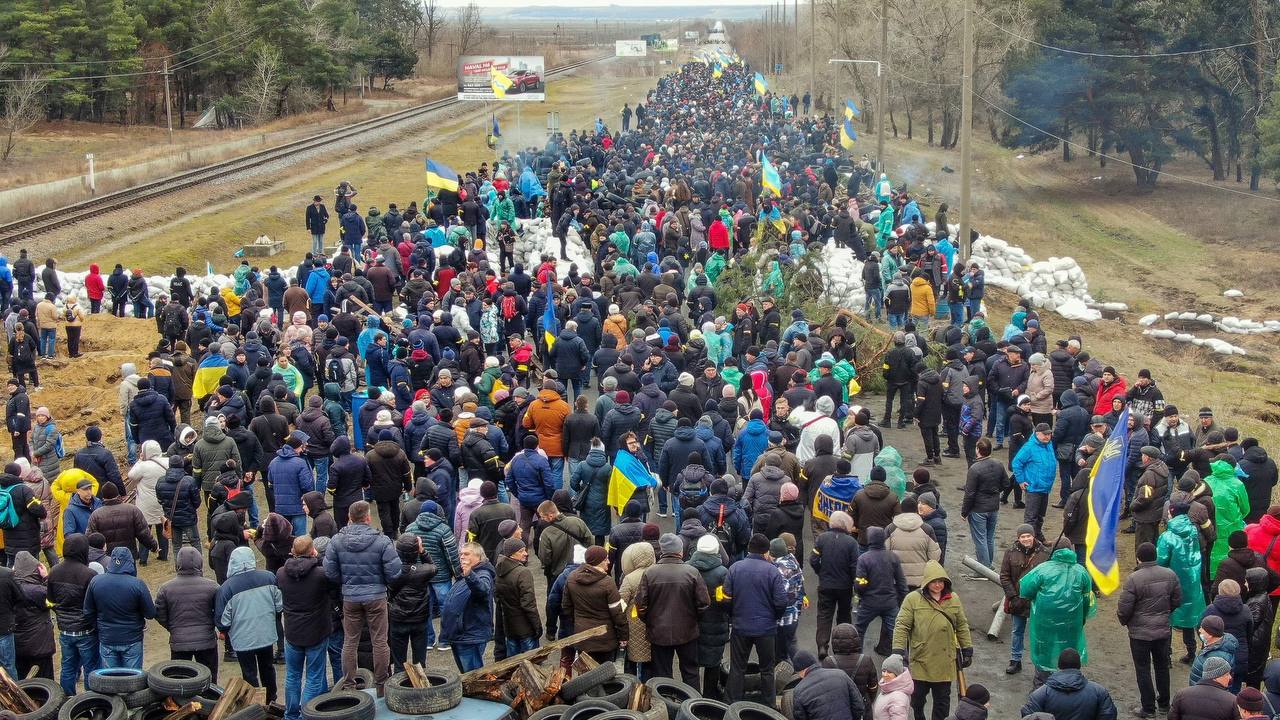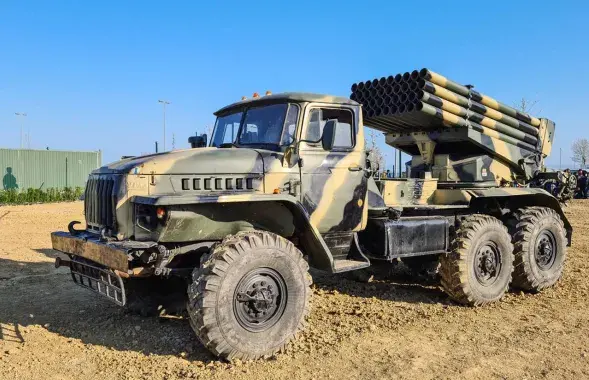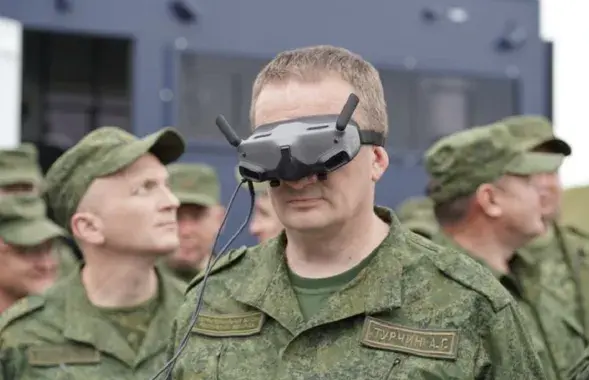IAEA stepped back from issue, Zaporizhzhya NPP employee says

Zaporizhzhya nuclear power plant was designed without military operations in mind / collage by Ulad Rubanau, Euroradio
A nuclear catastrophe can happen at the Zaporizhzhya nuclear power plant because of power outages. NPP employees are forced to work under occupation and cannot guarantee the safety of the plant.
Euroradio found out from a Zaporizhzhya NPP specialist about the danger of power outages and how the plant works with the Rosgvardia at the gatehouse.
At normal times, Zaporizhzhya NPP in the Ukrainian city of Energodar has four high-voltage lines from which it receives electricity. It also has one standby line. Because of the hostilities, communications with three of the lines have been severed. One of them was restored on the evening of March 18, the State Inspectorate for Nuclear Regulation of Ukraine reported.
"Russian troops not the only problem"
However, a serious threat to nuclear safety remains, because the electricity supply could stop at any time, according to Matvey (name changed), a plant employee. However, he cannot tell us everything about the work of the nuclear power plant. There is a risk that the data will be used by the Russian side to its advantage.
"We have problems with external connections. Bad things can happen because of that. Not even because Russian troops are here," says Matvey. - For the reactor to be in a safe condition, it needs constant cooling, whether it's in operation or not. You need to pump water for cooling. You need electricity for that. If you don't have it, there will be big problems. I can't tell you much more than that.
If we take the plant as a whole, there are no problems with it. Of the six units, two are now in operation, one is under repair, and three are shut down. There are no problems with the dry nuclear waste repository either - no problems with it.
Some of the power units were stopped for safety reasons and because the power consumption in Ukraine reduced during the war.
In the worst case, due to the interruption of external connections, the reactor core could be destroyed, which would lead to a nuclear accident, the Matvey says.
Our reactors are different from, for example, those of the Chernobyl plant. The project itself is better, but everything was designed without taking military actions into account. I don't think that the consequences will be like in Chernobyl. At the same time, nothing good will come out of it.
An explosion is unlikely. The release [of radioactive substances - Euroradio] is quite possible. If everything goes according to a bad scenario, we will have at least three days [to contain the catastrophe - Euroradio]. No one knows what will happen next.
"What to do? I wish the war would end"
It is impossible to help plant employees during the war, emphasizes Matvey.
"What to do? I wish the war would end. In peacetime, this situation would not have been possible. Now half of Zaporizhzhya region is under occupation. Including the city of Energodar. Accordingly, we cannot do much. Until the war is over, we won't solve the problem".
As for the NPP, it is serviced by Ukrainian specialists. They can leave on weekends and take turns.
"The operating staff works according to the regular schedule. The personnel who are not engaged in work or don't need to be at the plant are on home duty".
"They can even communicate with the outside world without control from the occupiers. However, due to problems with the Internet, this is not always possible. It is possible to inform the International Atomic Energy Agency (IAEA) about the state of affairs at the nuclear power plant, but the organization has de facto stepped back from the issue," Matvey says.
"Their only response is that we will conduct inspections at all of Ukraine's nuclear power plants".
Work at the plant is virtually no different from peacetime, except for the "psychological climate.
"At the checkpoint, Rosgvardiya is on duty instead of our National Guard. The cell phones are banned at the NPP. We also try to walk around the town without them. Rosatom is not involved in any way yet. I know, they are at the station. So far, they have just been watching".
In the meantime, life in the occupied city is getting harder.
"They started to put pressure on the local population. Before, they didn't touch them, but now they start beating up the local population, stealing cars. The orcs are hungry, their "leader" put them on self-sufficiency. So they have to get by somehow. Because of this, robberies of local residents begin".
Threat of a new Fukushima
According to the State Inspectorate for Nuclear Regulation of Ukraine, a 750 kilovolt high-voltage line has been restored. Given this line and the one that was in operation, the plant has not yet been left without power.

"Despite the Russian tanks driving there, one of the two transmission lines works, Ukraine knows this for a fact. 750 kilovolts is a huge capacity line," says nuclear physicist Andrei Ozharovsky.
If the plant workers' fears materialize and the nuclear power plant is de-energized, the world will be at risk of a severe radiation accident. Like the one that happened in Fukushima.
"There, as a result of an earthquake, power lines became inoperable. The reactors were shut down. That means that the main source of heat is gone, but there is the so-called residual heat release".
This heat release is a percentage of the nominal power. It's just that the rated power is huge, so it's a significant amount. That's why you need an additional source of power to pump water through the reactor core.
If that doesn't happen, then the reactors heat up. This can cause a reactor core meltdown, as it happened in Japan.
"It doesn't have to escalate into a severe accident. If the power supply is restored fairly quickly, this can be avoided. If back-up diesel generators are turned on, that too can be avoided".
"War is a nasty business as it is. War in a country packed with nuclear power plants is different from an ordinary war because, in case of a radiation leak, a disaster would create problems for a very long time," concludes Andrei Ozharovsky.
